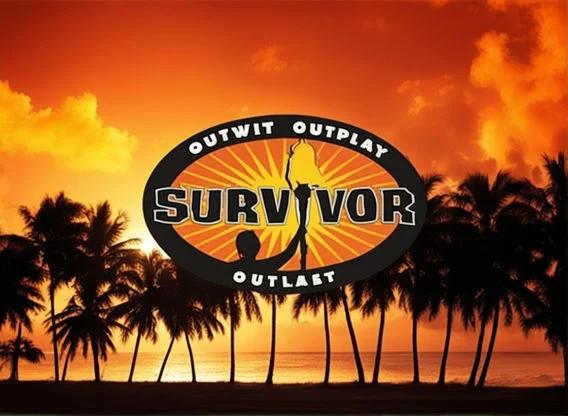Outwit, Outplay, Outlead: Leadership Lessons from 40+ Seasons of Survivor

“We’re all players in a game we didn’t design, navigating alliances, uncertainty, and the wild terrain of human behavior.”
I have been watching Survivor since the very first season. What began as a guilty pleasure quickly became something far more unexpected: a raw, unfiltered masterclass in human behavior, strategy, and the invisible dynamics that shape social dynamics.
Underneath the torches, blindside votes, and muddy challenges lies something profound. Survivor compresses life into a high-stakes pressure cooker where social capital is everything, plans collapse on contact with reality, and the ability to read the room often matters more than brute strength or sheer intelligence.
It's easy to dismiss the show as just another reality competition, but it’s much more than that. If you watch closely, Survivor becomes a mirror. A weekly case study in influence, trust, emotional agility, and what happens when people are stripped of titles, tech, and certainty.
Here are the most impactful lessons I have learned from watching Survivor and how they might change how you lead, live, and connect.
1. Strategy Is Important - But Social Awareness Wins Games
Every season, you’ll see a “chessmaster” emerge - someone who’s three steps ahead, calculating every move with surgical precision. And almost every season, that person gets voted out by Episode 6. Why? Because they forget they’re not just playing a game with strategy - they’re playing with people. Being smart isn’t enough. You need emotional intelligence, empathy, and a keen sense of timing. The best players don’t just make the right moves - they make others feel like the moves were mutual. They understand that influence flows through relationships, not manipulation. Strategy without humanity is sterile. If people don’t feel seen, they won’t follow. Ask yourself: Am I optimizing the plan, or am I connecting with the people who bring it to life?
2. Adaptability > The Perfect Plan
Every season, someone shows up with a bulletproof pre-game strategy. And every season, the island humbles them. A tribe swap happens. A hidden idol is played. A coconut alliance implodes. The players who thrive? They listen to the present moment. They shed the script and respond to what’s real, not what was planned. In our world of shifting priorities, hybrid teams, and unforeseen disruptions, rigidity is a liability. True leadership is less about having a fixed plan and more about being the person who can pivot without panic. Choose one decision this week where you abandon the script. Ask: What’s needed now? not What did I plan then?
3. Visibility Without Ego
Survivor winners have mastered a tricky dance: be visible enough to be trusted, but not so visible that you’re seen as a threat. Too loud? You're the next target. Too quiet? You’re irrelevant. The best players contribute meaningfully, build bridges, and lift others without needing to dominate. They shine, but they don’t cast shadows. Presence without ego builds trust. Show your value, but make space for others to rise, too. Ask yourself: Am I seeking to serve the room or to be the smartest person in it?
4. Trust Is the Real Currency
Forget fire tokens and immunity idols. The real economy on Survivor is built on trust. And not just big “loyalty oath” moments. It’s the micro-moments that matter: sticking to your word, sharing information, offering help when it’s inconvenient. Trust is rarely built in boardroom declarations. It’s earned in hallway conversations, in how you listen, and in what you do when no one’s watching. Where is trust missing in your work or life? What’s one small, meaningful action you can take today to repair or reinforce it?
5. Everyone Is Playing a Different Game
Here’s one of the most overlooked dynamics in Survivor: not everyone is playing to win. Some are playing to heal, while others are playing to prove something. The best players are those who figure out what game others are playing and adjust their strategy accordingly. Not every team member, client, or partner shares your definition of success. Influence doesn’t start with persuasion - it begins with understanding. Next time you meet someone, ask: “What’s most important to you right now?” Then, shape the conversation from there.
Let’s be real - you don’t need to be stranded in Fiji to face complexity, shifting alliances, and resource scarcity. You’re already there. We all are. Modern leadership isn’t about hierarchy or heroics - it’s about navigating ambiguity with presence, adaptability, and trust. It’s about reading the emotional weather and adjusting your sails. So, pause and ask:
Am I building trust or burning bridges?
Am I adapting or clinging to an outdated playbook?
Am I acting like a teammate or just trying to make it to the “merge”?
Survivor reminds us that the most powerful players aren’t the ones who bulldoze or betray but the ones who evolve, connect, and uplift others along the way.
In your leadership journey, the real goal isn’t just to outwit or outplay - it’s to out-connect, out-listen, and out-adapt.
That’s not just a game worth playing. That’s a legacy worth building. The tribal council may be metaphorical, but the stakes are very real. If you’re craving a more human, dynamic, and resilient way to lead, let’s talk. Or maybe just bring your metaphorical torch, and we’ll start a campfire conversation. Until then, play bold and lead brighter. Your tribe is watching.


0 comments
Leave a comment
Please log in or register to post a comment